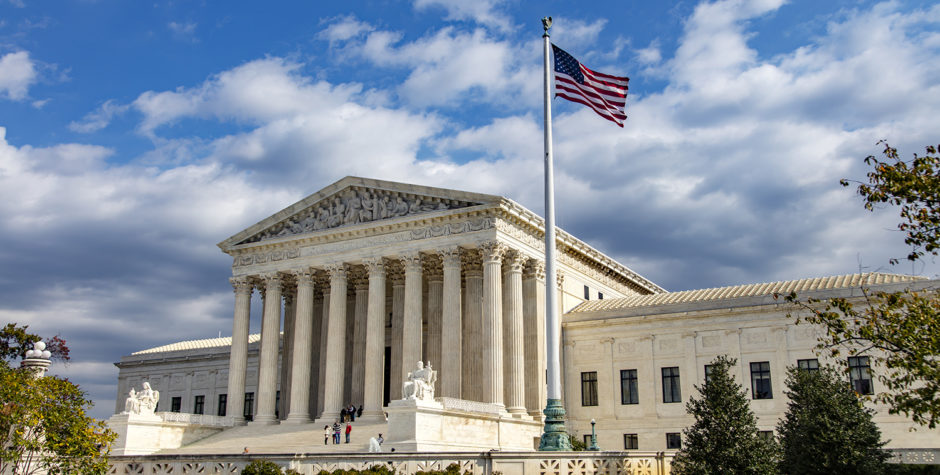Supreme Court Ruling Bolsters the Defunding of Planned Parenthood Internationally
The U.S. Supreme Court recently ruled by a 5-3 vote that the federal government can require foreign grantees, as a condition on receipt of anti-AIDS funding, expressly to oppose sex trafficking and prostitution.
The decision in US Agency for International Development v. Alliance for Open Society International (AID v. AOSI II) is a victory not just for the anti-trafficking policy, but also for the pro-life Mexico City policy, which denies funding to foreign entities that promote abortion. The ACLJ had filed an amicus brief defending the anti-trafficking policy requirement.
This was the second time the case came before the Supreme Court. In the first round (AID v. AOSI I), domestic grantees challenged Congress’s anti-trafficking policy requirement, alleging that requirement violated their First Amendment rights. The ACLJ filed an amicus brief supporting the government’s policy requirement. We argued that “hinging funding for the fight against sexually transmitted diseases upon a policy against sexually irresponsible behavior” made perfect sense and was a legitimate, constitutional condition for the dispensing of the relevant federal tax money.
Unfortunately, the Supreme Court disagreed. In its 2013 decision, a 6-2 majority (Justice Kagan was recused) ruled in AID v. AOSI I that the federal government was unconstitutionally forcing private agencies to adopt a policy position against their will.
As we explained previously, the case went back to the lower courts, which struck down the policy not just as to domestic grant applicants, but also their foreign affiliates. That prompted the federal government to seek and obtain Supreme Court review once again.
We filed a second amicus brief defending the anti-sex trafficking, anti-prostitution policy requirement and arguing that the first time around, the Supreme Court had got it wrong.
The second-round fight, AID v. AOSI II, was especially important for its implications for the pro-life Mexico City policy first put in place by President Reagan and subsequently readopted by other pro-life presidents, including President Trump, who expanded the policy. As we’ve told you, the Mexico City policy denies funding to overseas entities that perform or promote abortion. On the flipside, pro-abortion presidents consistently revoke the Mexico City policy during their administrations.
Since “promoting” abortion is a form of speech, a victory on behalf of foreign entities in AID v. AOSI II could have threatened the constitutionality of the Mexico City policy. As the Trump Administration explained in its reply brief in defense of the anti-trafficking policy requirement in AID v. AOSI II:
[The challengers’] theory . . . would have far-reaching consequences . . . [and] could call into question numerous governmental actions. A U.S. entity could, for example, . . . challenge the longstanding “Mexico City Policy” on the theory that its prohibition of U.S. aid to foreign entities that actively promote abortion as a method of family planning abroad infringes . . . speech rights . . . .
Fortunately, the Supreme Court’s decision alleviates that potential threat. As Justice Brett Kavanaugh wrote for the Supreme Court majority:
[The challengers’] position runs headlong into two bedrock principles of American law. First, it is long settled as a matter of American constitutional law that foreign citizens outside U.S. territory do not possess rights under the U.S. Constitution. . . . Second, it is long settled as a matter of American corporate law that separately incorporated organizations are separate legal units with distinct legal rights and obligations.
In other words, foreign companies working abroad cannot use the First Amendment as a weapon against the United States. And while domestic corporations do enjoy First Amendment protections, their foreign affiliates are separate entities that cannot piggyback onto the rights of U.S. corporations.
Bottom line: Groups like International Planned Parenthood Federation have no constitutional right to force U.S. taxpayers to pay for their abortion advocacy.
